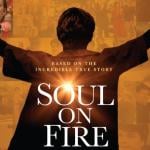
(LDS Media Library)
Raymond Moody, who holds a Ph.D in philosophy from the University of Virginia, an M.D. from the Medical College of Georgia, and a Ph.D. in psychology from the University of West Georgia, more or less launched the modern interest in near-death experiences with his path-breaking 1975 book Life after Life. Here are two reflective quotations from him on that subject:
“I have absolutely no fear of death. From my near-death research and my personal experiences, death is, in my judgment, simply a transition into another kind of reality.”
“What do I think happens when we die? I think we enter into another stage of existence or another state of consciousness that is so extraordinarily different from the reality we have here in the physical world that the language we have is not yet adequate to describe this other state of existence or consciousness. Based on what I have heard from thousands of people, we enter into a realm of joy, light, peace, and love in which we discover that the process of knowledge does not stop when we die. Instead, the process of learning and development goes on for eternity.”
***
Another important figure in the study of near-death experiences has been the social psychologist Kenneth Ring (Ph.D., University of Minnesota), whose career was spent as a professor of psychology at the University of Connecticut. Here is a summary comment from him on his research:
“Regardless of their prior attitudes [on near death experience] — whether skeptical or deeply religious — and regardless of the many variations in religious beliefs and degrees of skepticism from tolerant disbelief to outspoken atheism — most of these people were convinced that they had been in the presence of some supreme and loving power and had a glimpse of a life yet to come.”
***
Near-death experiences interest me for a wide variety of reasons. One of them, however, is clearly this: If even a single case of these described experiences is true and is to be taken at essentially face value, the ideology of materialism is plainly and demonstrably false.
That seems to me rather important, so, in my judgment, the topic appears to be well worthy of investigation. Eventually, I hope to publish a book on the subject. I would say that the manuscript is roughly 40% or 50% complete. There’s good stuff in it, in my humble opinion.
Posted from Portland, Oregon










